Dental Implants – Corte Madera, CA
Rebuilding a Beautiful, Healthy Smile

Missing one or more teeth is not only frustrating from an aesthetic point of view, but also from a functional one. In addition to having gaps in your grin, eating or even speaking might prove difficult. When a tooth is lost, the density of that area of the jawbone degrades as time goes by, which can cause further complications down the road.
One of the best ways to preserve bone growth and density in the jaw while also maintaining a complete smile is by replacing missing teeth with dental implants in Corte Madera, CA. Dental implants are the only tooth replacement that brings back the entire structure of missing teeth. As a result, they can look, feel, and function exactly like real teeth. Contact our dental office today to learn how Dr. Julie Young can start rebuilding a beautiful, healthy smile with dental implants!
Why Choose Corte Madera Dentist Julie Young, DDS for Dental Implants?
- Partnered with Local Dental Implant Specialists
- Fair Pricing with Zero Hidden Fees
- Advanced Dental Technology for Accurate Treatment Planning
What Are Dental Implants?

Dental implants are small titanium cylinders that are surgically inserted into the jaw to take the place of a missing tooth’s roots. As the only tooth loss solution to replicate the roots, dental implants are able to stimulate the jawbone to preserve your remaining teeth as well as your facial structure. After one of our partnered dental implant specialists places your implants, you’ll wait a few months for the biocompatible posts to merge with your jawbone. This creates a reliable foundation for Dr. Young to place a dental crown, bridge, or denture on top of the implants to complete your smile with a solution that can last a lifetime.
The 4-Step Dental Implant Process

The complex structure of dental implants necessitates a more complex and lengthy treatment process than that of traditional prosthetics like dentures or dental bridges. In fact, the dental implant process might take anywhere from several months to a year or more. However, your new teeth should last for decades to come, making them worth the wait. Dr. Julie Young partners with a local implant dentist in Corte Madera to ensure that you receive the highest standard of care. Every patient’s tooth replacement journey will look different from the next, but you can count on four basic steps: initial consultation, implant placement surgery, osseointegration, and the delivery of your final restoration.
Initial Dental Implant Consultation

The first step when getting dental implants is your consultation with your dentist. During this time, we will review your oral health and discuss your medical history to determine if you are a good candidate for the procedure. If necessary, we can work with you to complete preliminary procedures, like gum disease therapy, tooth extractions, or bone grafting. Then, we can move on to plan the rest of your dental implant treatment. During your consultation, we will walk you through what you can expect, including the timeline and cost of your treatment.
Dental Implant Surgery
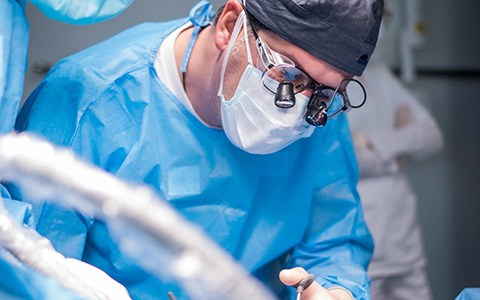
We want your dental implant surgery to go as smoothly as possible, so we work with local specialists to complete your procedure. First, you will be numbed with a local anesthetic. Then, an incision is made in the gum tissue so the implants can be placed in the jawbone. Your gums are then closed, and protective caps are placed on the posts to protect them as the area heals.
Dental Implant Osseointegration & Abutment Placement
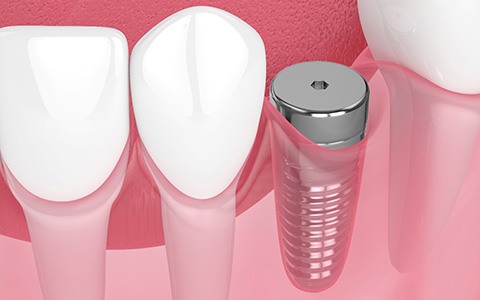
For the next few months after your surgery, your implants will fuse to your jaw in a process called “osseointegration.” This is what keeps your dental implants anchored in place so they don’t shift around or fall out. When the fusion process is complete, metal abutments are placed on the end of your implants.
Delivery of Dental Implant Restorations

The last step is to return to our office. This is when you will have your restoration placed. This will be a crown, bridge, or denture depending on how many teeth you are replacing. During this visit, we will ensure that your bite is aligned and comfortable so you can enjoy your new and improved smile!
Benefits of Dental Implants

While conventional bridges and dentures sit on top of the gums, dental implants take it one step further by also recreating the hidden roots of lost teeth. This allows them to essentially fulfill all of the functions that real teeth do. In fact, most dentists, including Dr. Julie Young, consider dental implants the gold standard of tooth replacement. From making eating and smiling easier to encouraging better long-term oral health, it’s no wonder more than three million Americans have chosen to reconstruct their smiles with this solution! Read on as we go over some of the reasons why our patients love dental implants.
Day-to-Day Benefits

- Eat All Your Favorite Foods: Dental implants are firmly anchored in the jawbone and restore 80% or more of your natural biting force, allowing you to eat steak, apples, nuts, and anything else on your plate!
- Smile with Complete Confidence: Over time, dental bridges can begin to feel loose and dentures may begin to pop out of place. Dental implants are designed to stay securely in place for decades, allowing you to eat, speak, and smile with complete confidence.
- Enjoy Stunningly Lifelike Results: We cover dental implants with custom restorations made of high-quality dental porcelain for beautiful, durable results that are virtually indistinguishable from natural teeth.
- Take Care of Your New Smile with Ease: There’s no need for extra cleaning solutions, brushes, or tools to keep your dental implants clean. Just brush and floss regularly and visit us every six months for checkups to keep your smile sparkling and strong!
Health Benefits

- Look Younger with a Strong Jawbone: Dental implants stimulate circulation in the jawbone, which prevents deterioration and shrinkage. In turn, this prevents the sunken, aged facial appearance that typically accompanies tooth loss.
- Prevent Future Tooth Loss: As your dental implants keep your jawbone strong, they also help support the foundation of the rest of your natural teeth, which lowers your risk of future tooth loss.
- Say Goodbye to Gum Irritation and Tooth Sensitivity: Dental implants are completely self-supporting, which means remaining teeth don’t need to be altered and your gums won’t be exposed to extra pressure and abrasion, like with traditional options.
- Lower Your Risk of Systemic Health Issues: Studies show that with better oral health thanks to dental implants, you can lower your risk of systemic health issues like heart disease, diabetes, memory loss, and many more.
Long-Term Benefits

- Rely on a Successful Tooth Replacement: With over a 95% success rate even 10 years after placement, dental implants are one of the most reliable tooth replacements available.
- Expect Long-Term Results: Thanks to their unique placement, most patients can easily expect their dental implants to last them a lifetime.
- Save Thousands of Dollars: Dentures and dental bridges need to be replaced every 5-7 years, but dental implants can last for decades, which can save you thousands of dollars in replacements alone!
Who Dental Implants Can Help

If you’re wondering whether dental implants in Corte Madera are right for you, there’s a very good chance they are! The vast majority of generally healthy adults are eligible for dental implants, whether they’re hoping to replace just one tooth or an entire mouthful. When you come to visit us for a consultation, Dr. Young can examine your mouth and evaluate your oral health before coming up with a treatment plan based on your circumstances.
Who Is a Good Candidate for Dental Implants?

Generally, we’ll consider a few different things when evaluating you for dental implants. An ideal implant candidate possesses the following:
- Good overall health – Since the dental implant process involves surgery, though minor, patients still need to be well enough to undergo it.
- Great oral health – Issues like tooth decay, cavities, and gum disease can all potentially threaten dental implants, meaning that they’ll need to be treated before implants become a realistic option.
- Adequate jawbone density – If your jawbone isn’t strong enough to successfully integrate the implants (which are fully biocompatible), they’ll likely fail prematurely.
In some cases, patients who don’t immediately qualify for dental implants can gain eligibility by completing certain preliminary procedures, including but not limited to dental bone grafts, periodontal therapy, or even tooth extractions. Our team is happy to help you incorporate these into your treatment plan if it’s been deemed necessary so that you can begin the process of rebuilding your smile with dental implants!
Missing One Tooth
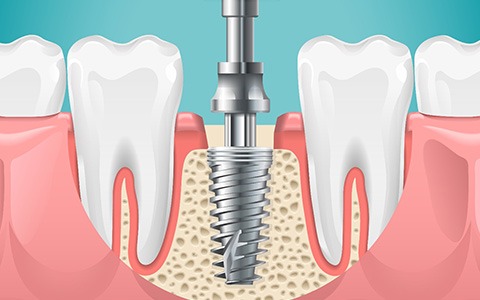
In the majority of cases, a single implant post is capable of seamlessly replacing one missing tooth. This solution is impressively sturdier and longer-lasting than other options, such as dental bridges—and better yet, the process doesn’t require the removal of healthy enamel from adjacent teeth, which is necessary when placing a bridge! After the implant post has been embedded and the bone and gum tissue has fully healed, the abutment is placed on top, which attaches the permanent crown to the implant and keeps it sturdy.
Missing Multiple Teeth
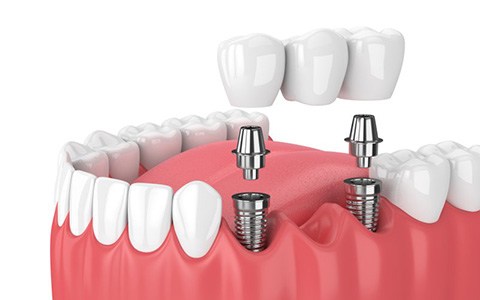
If you need to replace multiple teeth, we’ll try to use as few dental implant posts as possible; generally, two dental implants can be used to support a bridge that’s intended to replace three or more teeth in a row. If you’ve lost teeth in different areas of a single arch, we can combine dental implants with a customized partial denture; the exact number of implant posts needed will depend simply on how many teeth have been lost and where they were situated.
Missing All Teeth
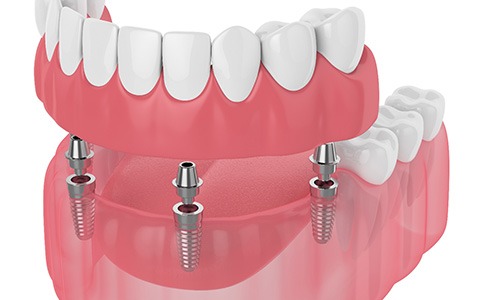
Dental implants can also be used to effectively replace an entire row (or two) of lost teeth! Usually, 4 to 6 implant posts are needed to support a full denture that’s used to replace an arch; thanks to all of the additional strength provided by these posts, you’ll be able to use your new teeth with significantly restored bite force, not to mention, unparalleled beauty. Depending on your needs, these can be either removable or fixed in place.
Understanding the Cost of Dental Implants

No two smiles are exactly alike, so the cost of dental implants can vary dramatically from one patient to the next. It depends on many factors, such as the number of implants you need, which type of restoration we place, and whether you require any preliminary procedures (bone grafting, tooth extractions, gum disease therapy, etc.) before implants can be placed. Our team can help you come up with the solutions you need to fit the cost of your new smile into your budget.
Preliminary Treatments & Dental Implant Surgery

In many cases, patients who desire dental implants must undergo preliminary treatments before moving forward with surgery. If you are someone who is being recommended for gum disease treatment, tooth extraction, or bone grafting, you can expect these to be incorporated into the final total of your treatment.
Also, the cost of your dental implant placement will be factored into the formal estimate. Since we partner with local implant specialists outside our office, you will be required to pay two separate bills: one that will come from their office for the surgery, and one that will come from our office for the remainder of your treatment.
The Parts of Your Dental Implant

The parts of your dental implant also incur various fees. Not only will we need to determine how many dental implants you will need, as replacing one missing tooth is far less expensive than replacing an entire arch, but we’ll also factor in the material used to craft your implant posts (zirconia or titanium), which type of restoration you will (i.e., dental crown, bridge, or denture), and the brand of dental implants that will be used.
You can expect our team to go over these details with you during your initial consultation. We will explain why we only partner with manufacturers who produce high-quality implants as opposed to those that are of a lower quality and often do not last as long.
How Dental Implants Can Save You Money

It may seem impossible for dental implants to actually save you money in the long run, but they can! If you think about the various products you must purchase when choosing dental bridges or dentures as well as the frequent replacements and adjustments required over the years, you’ll find that paying for dental implants will help you save.
There is no need to replace dental implants unless serious damage or infection occurs. Because of their firm placement within the jawbone, they mimic natural tooth roots and will not go anywhere as long as teeth are properly cared for and maintained over the years.
Not to mention, because of the continuous stimulation of your jawbone, you’ll be less likely to suffer from various health conditions that are often tied to tooth loss (i.e., diabetes, heart disease, etc.). This can help you to save lots of money on doctor’s visits and regular treatment.
Does My Dental Insurance Cover Dental Implants?

If you are lucky, your dental insurance company may already be covering dental implants; however, most still believe them to be a luxury form of treatment that is unnecessary. However, just because the surgical component may not be covered doesn’t mean that your restoration or preliminary treatments won’t be. Our team will work with your insurance company to help identify ways you can save when restoring and rebuilding your smile.
Making Dental Implants Affordable

For portions of your treatment that are not covered by dental insurance, you can enroll in CareCredit Financing. They offer no-interest financing for six months or up to one year for eligible enrollees, and you can avoid any surprise fees along the way.
Maintaining & Caring for Your Dental Implants

If you’ve suffered from tooth loss, dental implants can give you your smile back for a lifetime! However, you must take all of the proper steps to care for them. If you aren’t protecting your dental implants from damage or infection, they could fail and need to be replaced. Fortunately, with a few simple healthy habits and precautions, you can enjoy your restored smile for a lifetime!
Make Oral Hygiene a Priority

Dental implants are unable to get cavities, but the teeth around them still can. You are also still at risk for gum disease and other oral health issues, so it’s important that you maintain an excellent oral hygiene routine. Remember to brush twice and floss every day. It’s also a good idea to rinse with mouthwash daily for extra freshness.
Eat a Healthy Diet

The great thing about dental implants is that you don’t need to follow any type of restricted diet. You are free to enjoy all of the nutritious foods you’d like without any guilt! Just be careful not to overindulge in foods that are particularly hard, sticky, or sugary. Eat plenty of foods containing calcium and vitamin C to keep your jawbone strong and your gums healthy!
Break Bad Habits

Bad dental habits can increase your risk of dental implant failure. You should avoid smoking and chewing tobacco. These products slow down healing and encourage infection. You should also refrain from using your teeth as tools or chewing on hard objects, like pens, pencils, and ice. The last thing you want is a broken tooth or issues with your dental implant.
Protect Your Dental Implants

Sports are a great way to get the exercise you need and have fun! However, it’s common for people to experience dental injuries while on the field. It’s always a good idea to wear a sports mouthguard to protect your teeth and dental implants while participating in sports. If you grind or clench your teeth while you sleep, you may want to consider getting a custom nightguard to prevent wear and tear.
Schedule Regular Dental Checkups

You should continue to see us for regular cleanings and checkups every six months. This way, we can continue to monitor your dental implants and spot any issues as early as possible. The sooner we are able to detect a problem, the more likely that it can be corrected!
Dental Implant FAQs
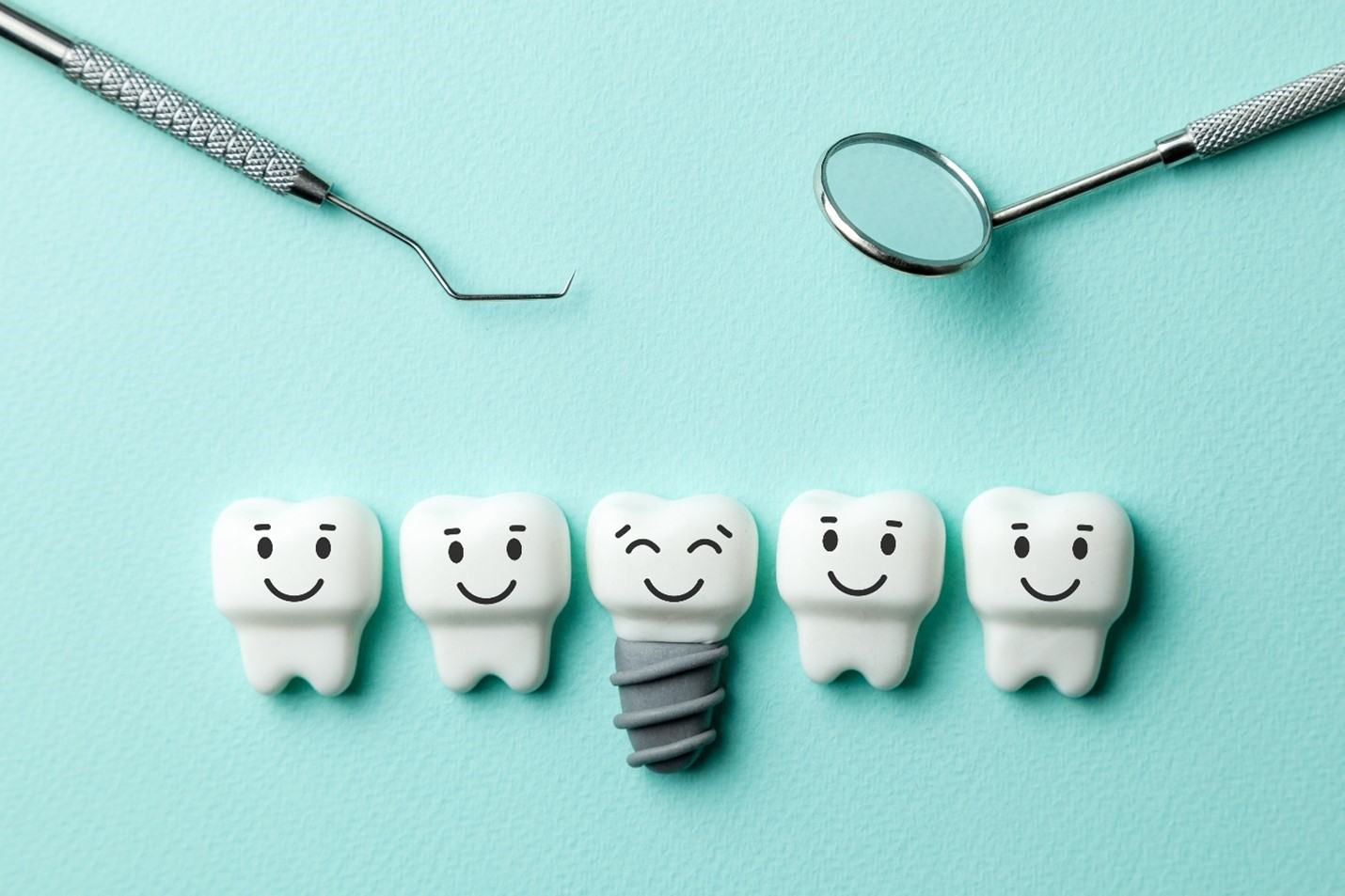
If you’re missing teeth, dental implants could be the solution that you’ve been looking for to restore your smile. However, they are quite an investment, so it pays to be well-informed about the procedure. We’re here to help. Here are the answers to some of the most common questions we are asked about dental implants in Corte Madera. If you don’t see the information that you’re looking for below, don’t worry. Give us a call and we’d be happy to answer your questions and get you started with an initial consultation.
How Long Do Dental Implants Last?
The lifespan of dental implants typically depends on the health and lifestyle choices of the patient. To ensure that dental implants last, be sure that you are brushing twice, flossing, and rinsing with mouthwash on a daily basis. Come see us regularly for cleanings and checkups, and avoid chewing on anything particularly hard or sticky. When cared for properly, dental implants can last upwards of three decades. This is several times longer than traditional bridges or dentures.
Does Getting Dental Implants Hurt?
The jawbone doesn’t have very many nerve endings, and your mouth will be numbed with a local anesthetic before the procedure begins. You will also most likely be sedated, lowering your body’s ability to register pain. Even though the surgery won’t be uncomfortable, your mouth may be sore for a few days afterwards. Take recommended over-the-counter and prescribed pain relievers as directed. Cold compresses can also help. If discomfort worsens instead of improving after a few days, give us a call so we can help.
How Successful Are Dental Implants?
When placed by a skilled professional, dental implants can have a success rate of over 95%! How successful they are ultimately depends on how well you take care of them with oral hygiene, routine checkups, and your diet. Success can also vary depending on the location of the implant in the mouth. Because molars receive more strain from chewing than the front teeth, they may be slightly more likely to fail.
Will I Have to Take Off Work for Dental Implant Surgery?
Most patients only need to take a day or two off work to get dental implants. If your job is physically demanding, you should probably take at least three or four days off. However, every case is different. During your initial consultation with us, we will be able to give you a more specific recommendation to meet your unique case.
Are Dental Implants Safe?
Dental implants are incredibly safe and successful for most patients with suitable oral health when placed by a qualified dental professional. While dental implants require healthy gums and strong jawbones to be placed successfully, patients who lack these attributes may achieve them through improved hygiene, periodontal treatments, or bone grafting procedures. If you have medical conditions that can complicate the healing process such as diabetes, autoimmune disease, or cancer, we will discuss them during your consultation and develop your treatment plan accordingly.
What Causes Dental Implants to Fail?
While dental implant failure is uncommon, it usually happens for one of two reasons: failed osseointegration or peri-implantitis. Failed osseointegration occurs when the implant’s titanium post fails to properly fuse with the jawbone and is more likely if the patient had low jawbone density in the first place. Peri-implantitis is a gum disease that results from poor oral hygiene and can loosen an implant by damaging the gums and bone tissue around it. Dental implants may also fail due to teeth grinding, a tobacco habit, poor oral hygiene, the use of certain medications, the head or neck being exposed to radiation, and health conditions such as cancer, diabetes, osteoporosis, and autoimmune disorders. We will provide you with guidelines that will help you reduce your risk of implant failure.
How Can I Tell if My Dental Implant Is Failing?
A failing implant may lead to symptoms such as severe pain in the tissue around the implant, inflammation or swelling of the gums, or the implant feeling loose. You may also feel a change in the way your teeth come together. If you experience any of these symptoms, contact our office immediately as they will only get worse without treatment. If your implant seems loose shortly after placement or after you have had it for some time after the surgery, we may be able to administer treatments that can save it and prevent implant failure.
Am I Too Young to Get Dental Implants?
The jaws of most people are not fully developed until young adulthood, and placing dental implants before that point can interfere with the way the bones develop and lead to serious complications. Some people’s jawbones are not completely developed until their early twenties. Most dental professionals will not perform dental implant placements for patients under the age of eighteen, but there is no upper age limit for these wonderful prosthetic appliances. It’s also worth noting that the jaws of men typically take longer to develop than those of women.
